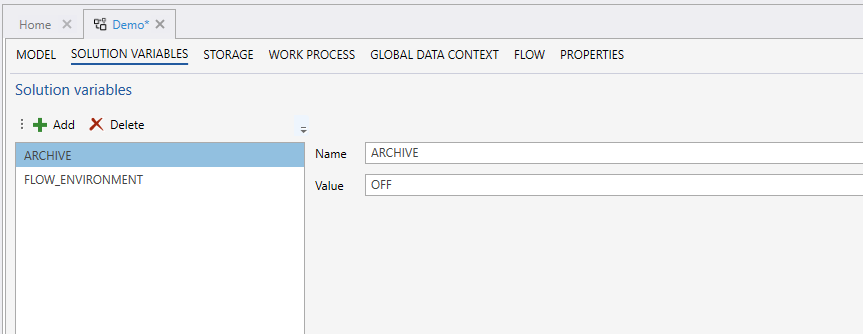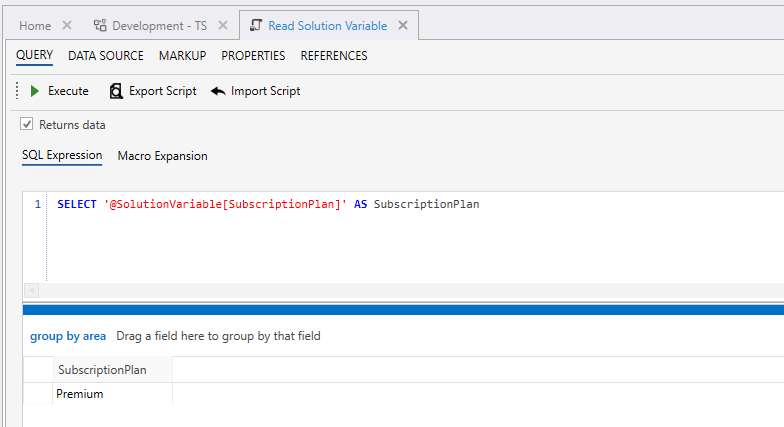Solution Variables
Solution Variables are global variables defined at the Solution level.
They are useful for storing configuration values (such as environment flags, connection names, constants, or feature toggles) that you want to reuse across multiple Data Flows, queries, or forms without hard-coding them.
Solution Variables are defined as Name/Value pairs in the Solution Variables tab of a Solution.
Built-in Solution Variables
The following Solution Variables control certain system behaviors: FEEDBACK_EMAILTO, FLOW_ENVIRONMENT and ACRHIVE.
FEEDBACK_EMAILTO
When users send feedback from Workbooks, the feedback is sent to Profitbase as email. To customize the email address that the feedback is sent to, add a FEEDBACK_EMAILTO Solution variable and specify the recipient address(es).
.png)
FLOW_ENVIRONMENT
Specify the FLOW_ENVIRONMENT Solution variable to override the default environment a Flow executes in. The default environment is Production. When you run a Flow from a Worbook, you can also explicitly specify the Flow envionment. See How to run Flows from Workbooks
.png)
ARCHIVE (OFF)
To disable auto creation of archive tables for Data Stores, Views and Tables (which are Workflow DataSet members), set ARCHIVE=OFF.

Custom Solution Variables
You can add your own Solution Variables in the Solution Variables tab:
- Open your Solution in InVision.
- Navigate to Solution Variables.
- Click Add and enter:
- Name: the identifier used when referencing the variable (e.g.,
SubscriptionPlan). - Value: the actual value (e.g.,
Premium).
- Name: the identifier used when referencing the variable (e.g.,
- Save your changes.
Custom Solution Variables are immediately available for use in SQL expressions.
Using Solution Variables in SQL expressions
You can read Solution Variables using Directives in SQL queries, for example in SQL Scripts or SQL Reports. This gives developers a built-in mechanism to define global variables that are easier to use than the Lookup function, when there’s no need for conditional lookups.
Example
Use the @SolutionVariable[Name] directive to inject the value of a Solution Variable directly into SQL:
SELECT '@SolutionVariable[SubscriptionPlan]' AS SubscriptionPlan;

